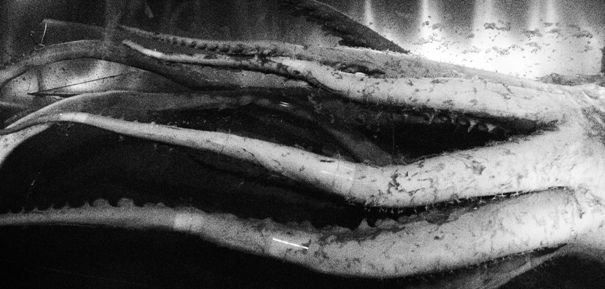Giant and colossal squids have soccer-ball-sized eyes that detect large moving objects at 120 metres.
Two of the biggest invertebrates on Earth are the giant and colossal squids, magnificent creatures that have baffled humanity for centuries.
Giant squids feed on small marine creatures and live “in the free water at depths between 600 and 1,000 metres in all the large oceans,” says University of Lund professor Dan-E Nilsson, who has spent months trying to understand why giant squids have the largest eyes in the animal kingdom.
After analysing two specimens and developing mathematical models that compare eye size to visual performance in pelagic environments, the researchers discovered that giant squids developed such large eyeballs “to spot sperm whales at long range and be able to swim out of the whale’s trajectory to avoid being captured,” Nilsson says.
On average giant squid’s eyeballs measure up to 30 cm and have a 9-centimetre pupil; the large pupil collects more light in dim light conditions. However, their over-sized eyeballs do not offer an advantage for other tasks such as looking for a partner or prey.
It is not cryptozoology
Architeuthis dux is a large cephalopod that weighs up to 900 kilograms — and just like their “cousins” it releases dark ink to deter their predators. The first video of the specimen was shot in 2006 and two years later a dissection was held at the Melbourne Museum.
Sperm whales rely on their sonar to detect squid, but giant squids are deaf to high frequency sonar. That is why their gargantuan eyeballs, which detect large predators that trigger plankton bioluminescence as they move through the waters, are so important — giant and colossal squids make up about 3/4 of the sperm whale’s diet in the Southern Ocean.
Source: Current Biology







